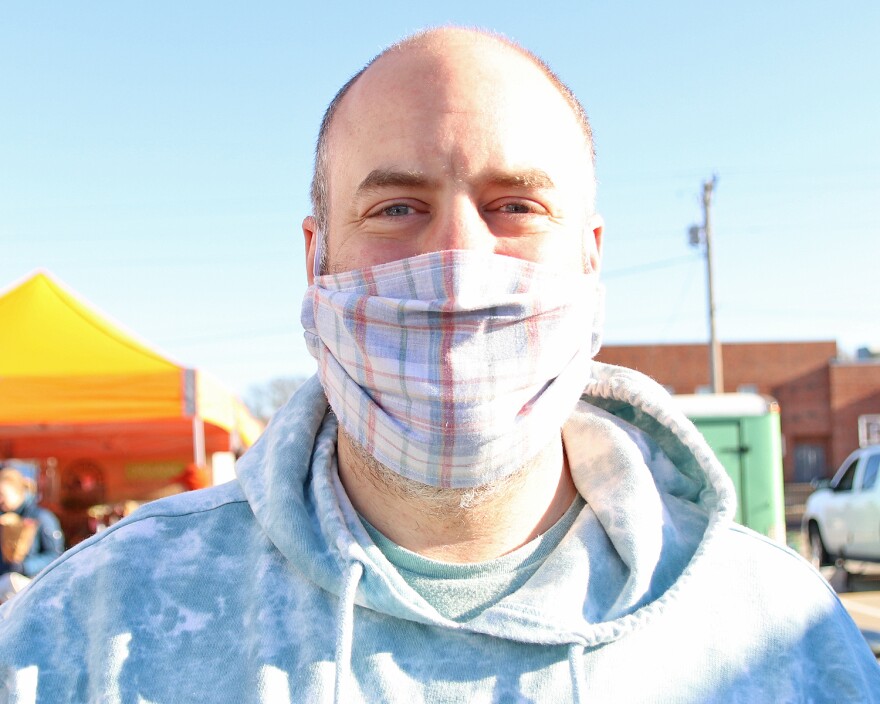Arbor day is coming up on April 29th.
Dale Amann spoke with the Missouri on Mic team at an annual tree giveaway for Arbor Day that was held at the Columbia Farmers Market in April.
The event was hosted by Columbia Parks and Recreation, the City of Columbia’s TreeKeepers volunteer group, the City’s Tree Board, the Columbia Center for Urban Agriculture [CCUA] and University of Missouri Agroforestry.
Dale spoke about his own history of gardening, and a program through the Center for Urban agriculture, Opportunity Gardens, which empowers low-income residents to start their own gardens.
Missouri on Mic is an oral history and journalism project documenting stories from around the state in its 200th year.
Dale Amann: I am actually here to pick up some trees – I have two blackberries. I plan on adding that to the two blackberries I got last year and continuing my crop I'm gardening this year.
This year I've got four of above ground gardens, and I've got more planned. Right now, we're growing radishes, carrots, leafy greens, cabbages, potatoes, broccoli, a bunch of onions, and then we're building more garden space for tomatoes and zucchinis and cucumbers.
While we used to live in Lampe, Missouri, which is in the Ozarks down south. The ground there is rocky – to say the least – it’s easier to grow rocks than anything else.
We tried growing and it was more of a labor of – I wouldn't say love because it wasn't very fun. It was it was painful – it was a labor of pain, is what it was.
And when we moved up here, we saw how wonderful the dirt was, we kind of threw out some seeds and things grew without us trying. So, now we're actually trying this year.
Growing up my parents had some tomatoes that where we lived were very susceptible to tomato worms. They're not worms, they're, I guess they're like giant caterpillars, and they get about – oh, six to eight inches long.
"When we moved up here, we saw how wonderful the dirt was – we kind of threw out some seeds and things grew without us trying. So, now we're actually trying this year."Dale Amann
They're really fat and thick – about the size of like a… I don't know what? About two inches in diameter. They're bright green and they hide along the leaves.
As a kid, we just picked them off and threw them into the woods. I was a kid – I didn't know what to do. They were big and thick, and I guess you're supposed to destroy them when you can. So, I don’t know.
I’ll deal with that problem, now as an adult, when I get to that problem – hopefully I won't.
I have got like over 300 different packets of seeds now. I have become very – I don’t have enough dirt for all the seeds I would like to grow. Because it's just, I don't know, I can't help myself.
[In] Columbia, Missouri, if you are low- income, there's a program where you sign up based on your income and family size that they'll [Columbia Center for Urban Agricaulture] come out and help you with gardening for up to three years.
I definitely recommend. It's been a wonderful process because like I said – I grew up in the woods, I come from the Ozarks – where we didn't know how to garden, you know, unless you beat the ground into submission and spent $300 on dirt that washed away immediately.
So, coming up here – having that program – has really changed our lives. They came out, helped us with building some above ground gardens. They came out and helped us with the seeds, and they do that every year for three years as long as you, you know, agree to work on the garden every year for those three years.




